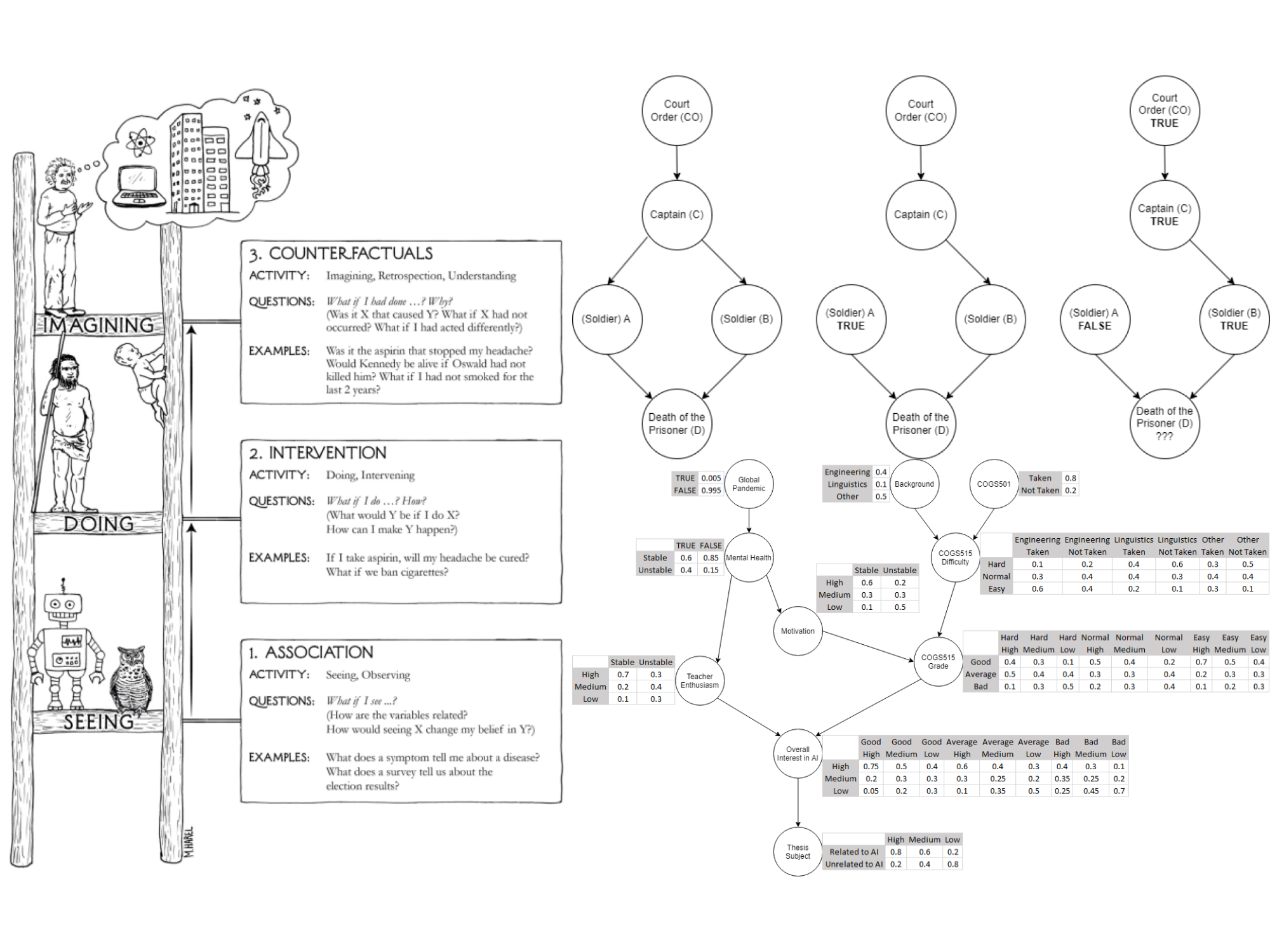M.S. Candidate: Mehmet İlteriş Bozkurt
Program: Cognitive Science
Date: 26.01.2023 / 11:00
Place: A-212
Abstract: Counterfactual statements are defined as conditional statements whose antecedents are false or unrealized (e.g., Anderson, 1951; Barwise, 1986, Ruhi et al., 2000; Pearl et al., 2016 among many others), which is one of the claims we challenge. The utilization and comprehension of counterfactual statements involve intricate cognitive mechanisms, including the ability to disregard actual events, the maintenance of both factual and counterfactual representations within mind, and the capacity to alternate between these representations. Counterfactuals have been extensively studied from a linguistic perspective, and more recently, they have been an important part of causality and causal modeling research with Judea Pearl at helm. The goal of this thesis is to contribute to this literature by combining these two perspectives in analyzing counterfactuals in Turkish, which we believe is a fresh approach that will shed new light on their nature. The research topics and questions include the following: whether the antecedent needs to be false or unrealized for one to be able to use a counterfactual construction, the use of -sAydI, a complex suffix in Turkish, and its relation to counterfactual interpretation, the difference between -DIysA and -sAydI, the rungs of Pearl & Mackenzie’s (2018) Ladder of Causation that sentences involving the use of -DIysA and -sAydI fall, and the role of pragmatics or context in the interpretation of a counterfactual statement. The contributions of the thesis include being the first to have a clear focus on Turkish counterfactuals and making use of directed acyclic graphs to graphically represent counterfactual scenarios in Turkish.
